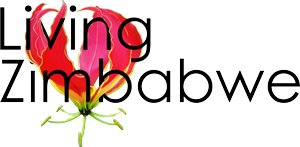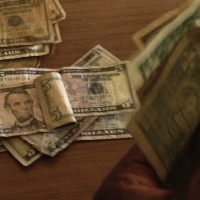For the everyday consumer life in Zimbabwe has progressively become difficult. Basic commodities are readily available but they aren’t in easy reach. As the days and weeks pass by, the economic situation has made one commodity harder to come by. Zimbabwe is going through a liquidity crunch which has made the dollar a rare commodity.
Without cash in hand, consumers are being careful about what they spend their money on and how much of it they spend. There are however economists out there who say that the liquidity crunch is largely an exaggeration created by companies that have accumulated debt and have failed to turn around their businesses. That they are essentially using a liquidity crunch as an excuse for their poor business models.
But, can that be said in the case of for example a general practitioner who at one point had a steady flow of patients over the years and who has over the months noticed an 80 to 90% drop in the number of patients seeking treatment? More often than not the patients present themselves when their condition is at an advanced stage and when asked why they took so long to seek help, their response has mostly been due to lack of money. Even after they have eventually been seen by a GP, they may not follow a prescribed treatment course due to once again, a lack of funds to buy medication.
In this scenario, the GP practise is not generating enough income to cover costs which includes paying staff. The same thing may also apply to the pharmacy where a patient would have bought medication in that they may see a drop in revenue. The reduction in the amount of cash flowing through the system has a cascading effect and negatively affects many people. Has this been the result of poor business models?
The government has also been affected by the economic slowdown and this has led to the Minister of Finance, Patrick Chinamasa introducing various measures in a mid-term fiscal policy review. The measures include an increase in excise duty on petrol from 30 to 35 cents per litre and diesel from 25 to 30 cents per litre, a 25% customs duty on mobile phone imports and a 5 percent excise levy on airtime top-ups for data and voice calls just to name a few.
Chinamasa may see these measures as being necessary to getting the government and economy back on track but, will they really achieve this goal?
At some service stations, you can now expect to pay about $1.52/litre for petrol and $1.43/litre for diesel. With just this increase alone, you can more than likely expect the price of everything to go up. It will now be more costly to transport goods and this may lead to increases at the till in order to recoup costs.
A number of the measures that have already been introduced and those still to be introduced are ones that will inevitable see the people of Zimbabwe having to shell out more money to get by from day to day.
It is hard to see which of the policies (if any) will have an effect of stimulating the economy which in essence is what it needs. Not a lot seems to have been done to make basic goods and services more affordable for consumers or to increase their purchasing power.
What are your thoughts on the mid term fiscal policy review? Do you think it will help Zimbabwe or only help to make a difficult situation even more difficult?


[…] By Living Zimbabwe […]